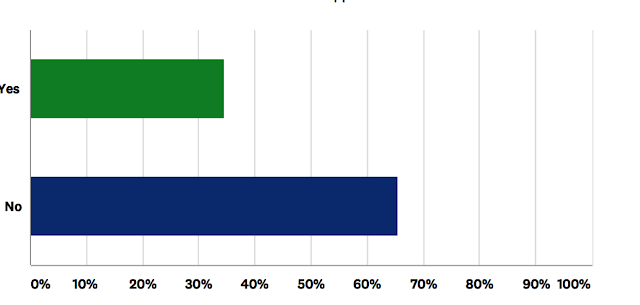It
has been said that “community radio” is in the mind of the beholder. Perceptions
are hard to measure but facts are universal. The National Federation of
Community Broadcasters (NFCB) just released the results of a member survey [link]. It is an eye-opener because is dispels some
of the stereotypes of community stations.
NFCB
[link] currently has around 180 members, up over 20% in the past three years.
Member stations are a mix of old-timers like KBOO in Portland or WORT in Madison, and
new voices such as LPFM stations and newer, format-driven, shops.
NFCB's
membership is primarily made up of stations in medium and smaller markets. NFCB classifies 64% of it's stations as “rural.” Though NFCB membership doesn’t
include every station that considers itself a “community” operation, it does
include most of the most consequential voices.
NFCB’s member survey is important because it helps quantify community radio for outsiders
and policy makers. Plus, the study provides facts that dispel some of the myths
and stereotypes about community media, and confirms a few.
Sally
Kane and Ernesto Aquilar from NFCB have kindly provided Spark News with background
data from the study. We found what we consider to be 11 takeaways from the
research.
COMMUNITY RADIO TODAY:
FACTS & MYTHS
Question #1: How many full-time and part-time paid staff positions does your station
have?
It
is a fact that most NFCB stations operate with few paid employees. We were surprised
at the percentage of community stations with four or fewer employees. Community radio comes in three sizes: Small,
Medium and Large. We assume that the largest shops are CPB-qualified. Many of
the very small shops are likely to be LPFM stations.
Note:
NFCB’s survey is based on responses from approximately one-third of its
membership. We are assuming that the
in-tab data is representative of the organization as a whole and community
radio in general.
Question #2: What is the
size of your annual operating budget?
Budget
is often tied to the number of paid employees.
In this chart we see the “two words” of NFCB stations. Approximately 75%
of the stations have annual budgets under $500,000. The average annual budget of a free-standing
NPR News/Talk stations is around $1.8 million. Again, we are assuming that the
larger stations are CPB funded.
Question #3: How many
pledge drives does your station have per year?
We
were surprised that roughly 30% of stations only have one pledge drive per
year. There may good reasons for this at the local level. But the facts are that some community stations do a poor job of branding and selling
their unique service to listeners.
Question #4: Has your
station’s membership grown in the last 5 years?
We
were pleased to see that over half of NFCB stations have added new members in
the past five years. Every year it seems there are more competitors searching
for a share of the ear. If an
organization is increasing member base, it is going against the prevailing
tide. That is a good thing.
Question #5: Does your
station own or rent tower(s)?
Good
question! Recently Spark News has done
several stories about stations that own their own towers and count on it as a
dependable revenue source. More stations should consider this as a capital
campaign.
Question #6: Does your
station have a local news program service?
We
were surprised that over half (55%) of NFCB stations do not have a local news
program service. Perhaps this is due to the lack of clarity of the question.
What is the definition of a “local news program service?” Is it a newscast? Is it a talk show? Do
PSA’s count as “local news?”
Question #7: Does your
station carry nationally syndicated program(s)?
This
question might be re-worded to say …nationally syndicated program(s) other than Democracy Now! Carriage of Democracy Now! is ubiquitous. There are no equivalents of All Things Considered or World Cafe in community radio. The lack of marquee programs makes it more difficult to define community radio.
Question #8: How many
volunteers does your station have?
Volunteer
participation is core characteristic of community radio. Make the volunteers part of a station station promotion.
Question #9: Does your
station produce programs that other stations air?
It
is a fact that most community stations play few nationally syndicated programs.
It also appears that approximately 43% of NFCB stations want other stations to
carry their shows. This seems to be a disconnect between scheduling and expecting outside carriage.
Question #10: Does your
station produce a podcast?
This
topic is bigger than one question. It is
useful to know how many stations produce podcasts but how do stations handle
staff and volunteer based podcasts.
Start with the basics: Who owns these podcasts? What is the station
policy toward someone promoting their own podcast on-air?
Finally, a bonus
question: Does your station have a workplace harassment policy?
This
is the most surprising finding in the NFCB survey. If your station does not have a workplace harassment policy you may be one step
away from a scratch-and-win lawyer. Please take action now to limit harassment and
liability.














No comments:
Post a Comment